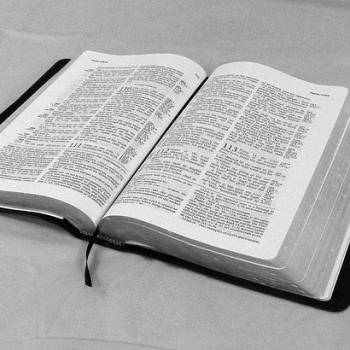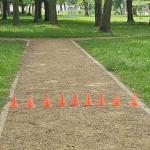
I was not a good student. Throughout my elementary, middle, and high school years, I consistently struggled to experience any kind of academic success. My grades were always very low, and, not surprisingly, I actually developed a strong dislike for school. I had an aversion to all things academic. The issue wasn’t really intellectual ability; the one area where I did experience success was in standardized testing. I typically scored in the top five or ten percent of test-takers, which seemed to really befuddle my teachers. The most common comment I heard at parent-teacher conferences was along the lines of, David could be a straight-A student if he would only learn to apply himself.
The Struggle Was Real

Ahh, but there’s the rub. I never did learn to apply myself. For all of my childhood academic career, I never really learned to “apply myself.” There were many reasons for this, but essentially I was dealing with too many more pressing problems outside of school to really focus on school. I didn’t understand this, and neither did my mother or teachers, and my struggles reached their peak when I started high school and promptly failed the ninth grade. Twice. It wasn’t until much later that I understood the impact that trauma and chronic stress can have on a child in seemingly unrelated arenas. It also wasn’t until much later that I understood that there could be value in my struggle, that one persons hurt could help provide healing for others who were also hurting.
The Struggle Serves a Higher Purpose
When I became a teacher and principal myself, I realized something that revolutionized my understanding of the value of the challenges I had faced as a student. Where other teachers struggled to understand the motivations and challenges underperforming students were facing, and where they had a hard time comprehending why a student wouldn’t just do his assignments, or take notes, or turn in homework even when they had it done, I empathized very well because I had had a similar experience. I knew from my student experience that it was probably not laziness or rebellion, and I was able to engage these challenged students in a real, empathetic, dialogue. Not always, but often, I was able to help them move forward and improve because of the hurt and struggle I had experienced.
The Struggle Can Be Sacred
The Bible says that one of the greatest attributes of Jesus is His ability to identify with our struggle, not in a hypothetical, intellectual, way, but in a real, experiential way. He became sin who knew no sin (2 Corinthians 5:21), and He experienced the same challenging temptations and struggles we experience which enables him to sympathize with us in our own struggles (Hebrews 4:14, 15). What a concept! Jesus knew pain and suffering, trials and tribulations, and he knew the challenges associated with very real temptations. But all of that is what enables him to identify with us and guide us from where we are to where he wants us to be.
Embrace your struggles. Even embrace your failures. They are temporary ashes from which the Father will bring the most beautiful new thing (Isaiah 61:3), and they are the well from which you draw to help others heal.
Have you experienced times where your own struggles and pains actually helped you to engage with someone who was hurting, to empathize and comfort, and maybe even help them through it a little bit? Drop a comment telling us about it. I find these kinds of stories to be so encouraging and strengthening.
















